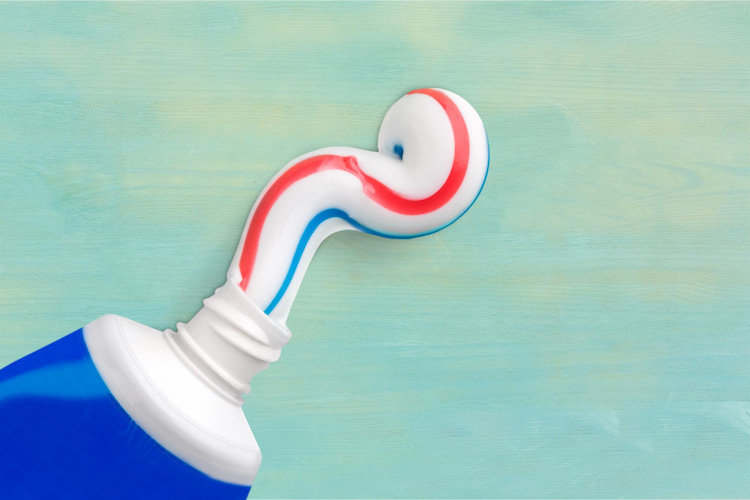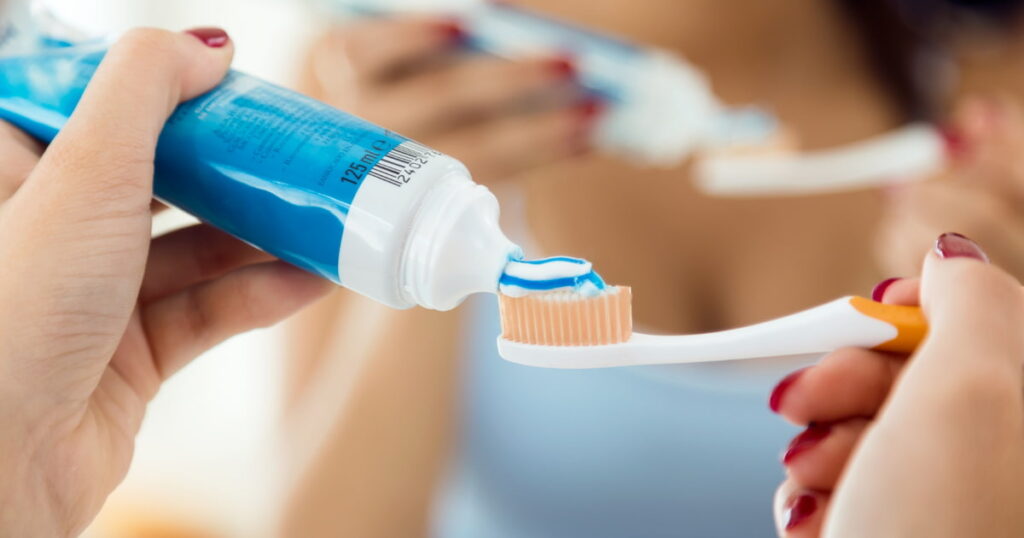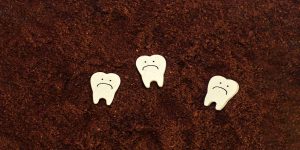When it comes to dental health, fluoride is a well-known mineral. You’ve certainly heard about fluoride toothpaste and how it’s beneficial for your teeth. In this blog post, we’ll explore the benefits of fluoride, how it works, and what to consider when choosing the right fluoride toothpaste. We’ll also look at other sources of fluoride and discuss important safety precautions.
What is Fluoride?
We’ve all heard about fluoride. In fact, this word can be heard quite a lot in discussions about dental hygiene. Fluoride is a naturally occurring mineral found in water, soil, and various foods. Since the early 20th century, fluoride has been recognized for its ability to strengthen teeth and prevent cavities. Since then, it’s been used widely in dental products like toothpaste and mouthwash, as well as in community water fluoridation.
Fluoride and Dental Health
Fluoride does one thing very well: preventing tooth decay! Keeping the bacteria from infecting your teeth is an essential part of an oral health routine, and fluoride is the right agent for this purpose. This mineral can strengthen the teeth’s natural barrier against bacteria and infection. With a reduced risk of cavities, your mouth and other parts of your body will be safe from attacks.
How Fluoride Benefits Your Teeth
Fluoride can reverse early signs of tooth decay; but how? How does this mineral strengthen tooth enamel so it can fight bacteria better? Let’s find it out!
Strengthening Tooth Enamel
We consume sugary or acidic foods daily. Bacteria that exist in the mouth use these to produce their acids. These acids aren’t healthy for tooth enamel and can wear it down. Tooth enamel loses its minerals and becomes weaker. Fluoride replaces these minerals, which is called remineralization. As a result, teeth become more resilient to acid attacks. When you use fluoride regularly, your tooth enamel stays strong over time.
Preventing Cavities
Fluoride is one of the most effective agents for preventing cavities. As it makes your tooth enamel stronger, the chance of bacteria penetrating your teeth and causing decay is reduced. When you use fluoride toothpaste, you’re creating a protective barrier against cavities. This is especially helpful in areas that are hard to clean, like between teeth.
Reversing Early Signs of Decay
Our amazing friend fluoride doesn’t just prevent decay! It can also reverse it! When decay begins, it creates weak spots in the enamel. Fluoride strengthens these weak spots, so the progress of decay is slowed down. Your tooth can use this to heal itself and fight back against decay. This remineralization process is one of the reasons fluoride is essential, both for children and adults!
Choosing the Right Fluoride Toothpaste
Not all fluoride toothpastes are the same. Here’s what to look for when selecting a toothpaste that you can safely add to your oral hygiene routine.
Recommended Fluoride Levels
Dental professionals recommend a fluoride concentration of about 1,000 to 1,500 parts per million (ppm) in toothpaste for both children and adults. This level is effective in protecting against cavities and strengthening enamel. When buying your fluoride toothpaste, check for these levels. You can find this information usually on the toothpaste labels.
Fluoride-Free Options
We discussed how using the right fluoride toothpaste can be helpful when it comes to protecting your oral health. However, if you have specific health conditions and allergies or you’re concerned about fluoride toxicity, you may choose to avoid it.
For those who prefer not to use fluoride, fluoride-free options are available. These toothpastes contain other natural minerals or ingredients that help clean teeth. Although, these ingredients may not be as strong as fluoride for cavity prevention. Fluoride-free options may contain these:
- Charcoal
- Hydroxyapatite
- Baking Soda
- Herbal Ingredients
- Calcium Phosphate
- Xylitol
- Aloe Vera

Fluoride Beyond Toothpaste
Fluoride toothpaste is not the only option to boost your oral health routine with fluoride. You can use fluoride in other forms as well!
Fluoridated Water
Fluoride can be added to community water supplies to reduce tooth decay. Many cities have been fluoridating water for decades, leading to a significant decline in cavities. Drinking fluoridated on a daily basis means exposing your teeth to fluoride regularly. This enhances the protective effects of fluoride on your dental health.
Fluoride Mouthwashes and Gels
Besides fluoride toothpaste, you can choose fluoride mouthwashes and gels to boost your dental health. If you’re at a higher risk of cavities, these options are especially helpful for you. You can easily incorporate fluoride mouthwashes into your daily oral health routine. Fluoride gels are often prescribed by dentists for patients with severe enamel erosion or chronic dry mouth.
Experience Premium Dental Care at Pearl Dental Group!
Your smile is our mission, and we are dedicated to protecting it with precision and compassion. Pearl Dental Group is here to provide everything you need for a perfect smile, from fluoride treatments to teeth whitening. Contact us today and experience the difference.
What Safety and Precautions to Consider
Fluoride is a beneficial mineral that can guard your dental health. However, you need to use it correctly so you avoid potential risks associated with excessive intake of fluoride.
Fluoride Toxicity
Fluoride toxicity is rare, but it can occur if too much fluoride is ingested, especially by young children. Symptoms of fluoride toxicity include:
- Nausea
- Vomiting
- Abdominal pain
To avoid fluoride toxicity in children:
- Supervise them when brushing
- Use only a pea-sized amount of toothpaste for kids under six
- Make sure they spit out toothpaste rather than swallow it
Monitoring Fluoride Intake
It’s important to monitor your fluoride intake. It’s more important for children because they’re more susceptible to fluorosis (a condition caused by excessive fluoride that can lead to white spots on teeth). Make sure your children use toothpaste that is suitable for their age. We recommend you consult a dentist about fluoride supplements.
Bottom Line
Fluoride toothpaste is one of the most effective tools for keeping your dental health in the best shape. Fluoride strengthens tooth enamel and can reverse early signs of decay. Choose a fluoride toothpaste with the recommended fluoride level or use it in the form of mouthwashes and gels and enjoy a healthy smile!
FAQs
1. Is fluoride essential for dental health?
Yes, fluoride is essential for strengthening tooth enamel and preventing cavities. It helps protect teeth from acid erosion and decay. Both children and adults can use it to maintain their dental health.
2. How does fluoride prevent cavities?
Fluoride prevents cavities by remineralizing and strengthening enamel. It makes teeth more resistant to acid attacks from plaque, bacteria, and sugar. It can also reverse early signs of tooth decay.
3. Are there any side effects of using fluoride toothpaste?
Side effects are rare but may include mild tooth discoloration (fluorosis) in children who ingest large amounts. Supervised use and correct dosage prevent adverse effects, making fluoride toothpaste safe.
4. Can too much fluoride be harmful?
Yes, excessive fluoride can lead to fluorosis, especially in children, causing white spots or streaks on teeth. High doses may cause toxicity, so careful monitoring is advised for young children.
5. What are the benefits of using a fluoride mouthwash?
Fluoride mouthwash provides extra protection by reinforcing enamel and reducing cavity risk, especially in hard-to-brush areas. It’s beneficial for those with a higher risk of decay or weakened enamel.
6. Is fluoride-free toothpaste effective?
Fluoride-free toothpaste can clean teeth well but may not provide the same cavity protection as fluoride toothpaste. It’s an alternative for those avoiding fluoride, but it doesn’t prevent decay as effectively.








